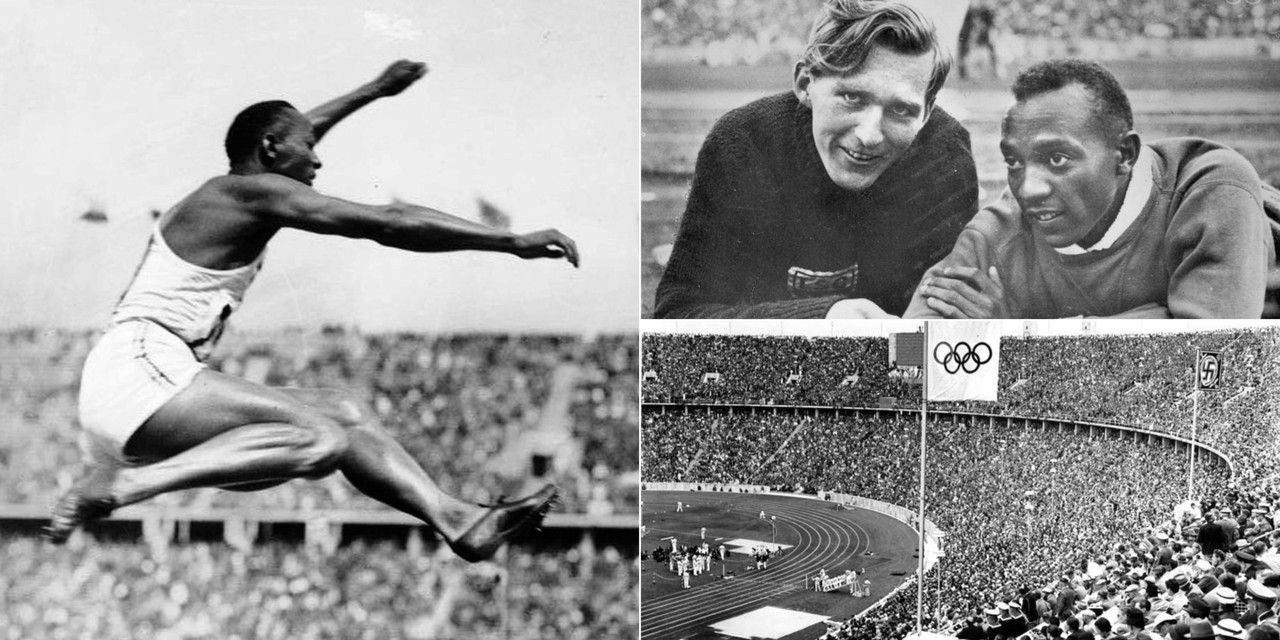All eyes are on Paris right now as the city hosts the 2024 Olympic Games, a major sports event that has accompanied human history for centuries. The Olympics not only showcase athletic abilities, but also reflect the evolution of society, culture, and politics. In this article, we’ll explore one of the most controversial Olympics ever held: the 1936 Games in Berlin, Germany.
The Olympic Games have often been seen through the lens of political influence, where the flawless organisation of the sporting competition offers the chance to significantly improve the reputation of the country and its officials. Government leaders often take advantage of the success of the Olympic Games and the media impact they generate to enhance their image and reputation in the world. This dynamic was particularly evident in the 1936 Berlin Olympics.
© German Federal Archive
During the first ever Olympic Games in Germany, dictator Adolf Hitler tried to convince the world that he was not a fascist leader, but rather a great philanthropist (cf. Von Tunzelmann: The Shameful Legacy, 14 June 2012). As Jean-Marc Dreyfus stated in his book “The Berlin Reports”, by inviting the world’s sporting elite to the German capital, the National Socialist regime wanted to show its openness, peacefulness and hospitality while dispelling any premonitions of what was to come.
Sportswashing
The 1936 Olympics in Berlin were a blatant case of sportswashing long before the expression became established. This term describes the practice of nations or corporations using sports to improve their reputation through hosting sporting events, purchasing, or sponsoring sporting teams, or participating in a sport.
This strategy is often used by authoritarian governments to direct attention away from human rights violations, or to cover up crimes and scandals. In the case of the NSDAP (National Socialist German Workers’ Party) the Olympics enabled Germany to be once again recognized as a member of the international community after the shameful defeat in the First World War and the heavy reparations that paralyzed the country for so long (cf. Dreyfus: Les Rapports de Berlin, p. 165).
The great winner of the 1936 Berlin Olympics
Amid this context, the outstanding winner of the 1936 Berlin Olympics was the black American track and field athlete James Cleveland “Jesse” Owens (1913-1980) who won four gold medals in the sprint and long jump events. He became the most successful athlete competing in Berlin, outperforming all his rivals in the disciplines 100 meters, 200 meters 4 x 100-meter relay and long jump.
In his article “The Nazi Olympics of 1936”, Arnd Krüger claimed that the exceptional performances of black athletes were begrudgingly tolerated by the German leadership during the 1936 Berlin Olympics because they distracted from the achievements of Jewish athletes, who were the regime’s real target.
© German Federal Archive
An unusual friendship
During the long jump competitions, Jesse Owens became friends with the second-placed German athlete Carl Ludwig Hermann “Luz” Long (1913-1943), with whom he would forge a long pen friendship. Jesse Owens acknowledged that it took Long a lot of courage to befriend him in front of Hitler and felt grateful for Longs support during the jump events (cf. Schwartz: Owens, 2007).
Despite his glorious sporting successes in Berlin, Jesse Owens did not receive the recognition he deserved after returning home, as the United States of America were characterized by racial segregation at that time (cf. Schaap: Triumph, p. 211).
As we celebrate the 2024 Olympics in Paris, athletes from all over the world have the opportunity to prove their abilities in front of their fans and the world audience until Sunday, August 11, 2024. Following the Olympics, the Paralympics, which have been organised since 1948, will take place from Wednesday, 28 August 2024, to Sunday, 8 September 2024.
© International Olympic Committee
Want to find out more about this topic? Here are the sources and further reading material:
Augustin, Jean-Pierre and Gillon, Pascal: L’Olympisme. Bilan et enjeux géopolitiques. Paris 2004.
Blaizeau, Jean-Michel: Les Jeux Défigurés: Berlin 1936. Paris 2012.
Dreyfus, Jean-Marc (ed.): Les Rapports de Berlin: André François-Poncet et le National-socialisme. Paris 2016.
Hilton, Christopher: Hitler's Olympics. The 1936 Berlin Olympic Games. Gloucestershire 2006.
Kreuzpaintner, Karin: Olympia: Mythos, Sport und Spiele in Antike und Gegenwart. Petersberg 2012.
Krüger, Arnd: The Nazi Olympics of 1936, in Kevin Young and Kevin B. Wamsley (eds.): Global Olympics: Historical and Sociological Studies of the Modern Games. Oxford 2005, pp. 43–58.
Schaap, Jeremy: Triumph. The Untold Story of Jesse Owens and Hitler's Olympics, New York 2007.
Schwartz, Larry: Owens Pierced a Myth. In ESPN (ESPN.com: Owens pierced a myth). Year of publication: 2007. Last opened on 5 August 2024.
Von Tunzelmann, Alexander: The Shameful Legacy of the Olympic Games. In The Guardian (https://www.theguardian.com/film/2012/jun/14/shameful-legacy-olympics-1936-berlin). Date of publication: 14 June 2012. Last opened on 25 February 2023.
